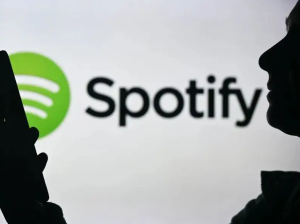The prevalence of Spotify MOD has sparked significant debate about its effects on the music industry. While it is commonly understood that such modifications can lead to revenue loss for artists due to circumvention of paid subscriptions, there are nuanced views suggesting potential, albeit controversial, benefits to artists. This article examines these potential upsides, providing a detailed analysis of how Spotify MOD might inadvertently serve artists.
Increased Exposure in Unmonetized Markets
One argument in favor of Spotify MOD is the potential for increased exposure. In regions where Spotify’s premium service is unaffordable or unavailable, modified apps enable access to a vast library of music. This exposure can be particularly beneficial for emerging artists or those from smaller labels who might otherwise struggle to reach such wide audiences. While these streams do not directly translate into revenue, the exposure can lead to increased popularity, which might be capitalized on through concerts, merchandise sales, and more.
Cultivating a Global Fan Base
Spotify MOD can help artists build a global fan base by making their music accessible worldwide, regardless of local economic barriers. For instance, fans in economically diverse regions can access music that would typically be behind a paywall. This widespread access can lead to more significant followings, potentially increasing attendance at international concerts or sales of physical albums and merchandise, where margins are often higher than streaming revenues.
Potential for Future Monetization
The initial use of Spotify MOD by listeners could serve as a gateway to future legitimate consumption. Once users become fans of an artist, they might be more inclined to support them through legal means. This theory suggests that initial unauthorized access could lead to higher revenue streams in the long run, as dedicated fans seek to support their favorite artists directly.

Driving Engagement Through Data
Though unofficial, the data from Spotify MOD usage could provide artists and producers with insights into listener preferences and behaviors, albeit indirectly. Understanding which songs are popular on modified apps could inform artists about trends and preferences, particularly in regions not fully covered by official analytics. This information could guide future productions and marketing strategies.
While Spotify MOD undoubtedly poses challenges to artists in terms of direct revenue loss, the potential benefits in terms of exposure, global reach, and indirect monetization strategies suggest a complex impact. For artists, particularly those starting or outside the mainstream, the additional exposure could serve as a crucial stepping stone. However, for the overall health of the music industry, a balance must be struck to ensure that artists are compensated fairly while maintaining global access to their work.
For more insights into the complexities of music streaming and artist revenue, visit spotify mod.

